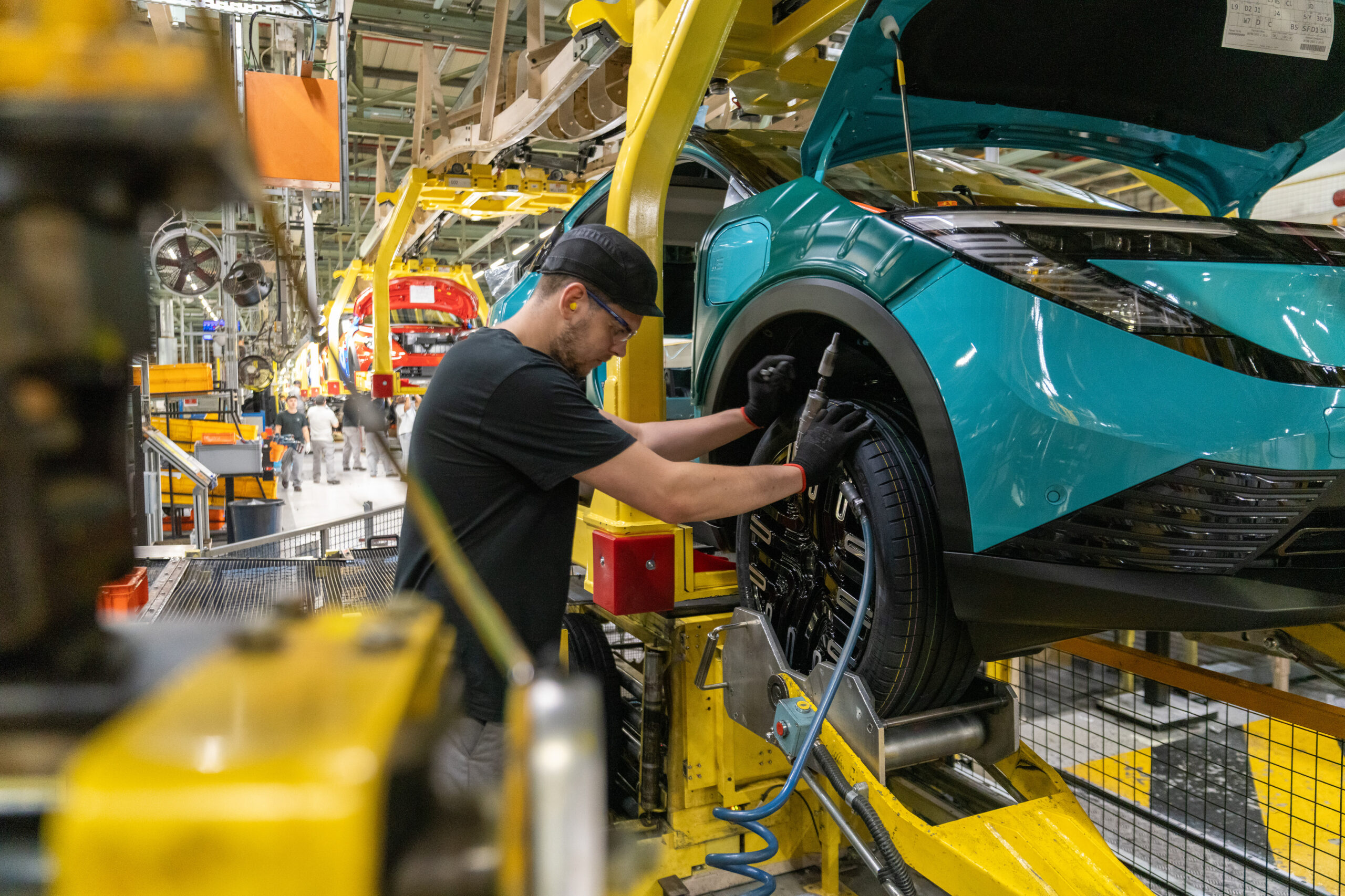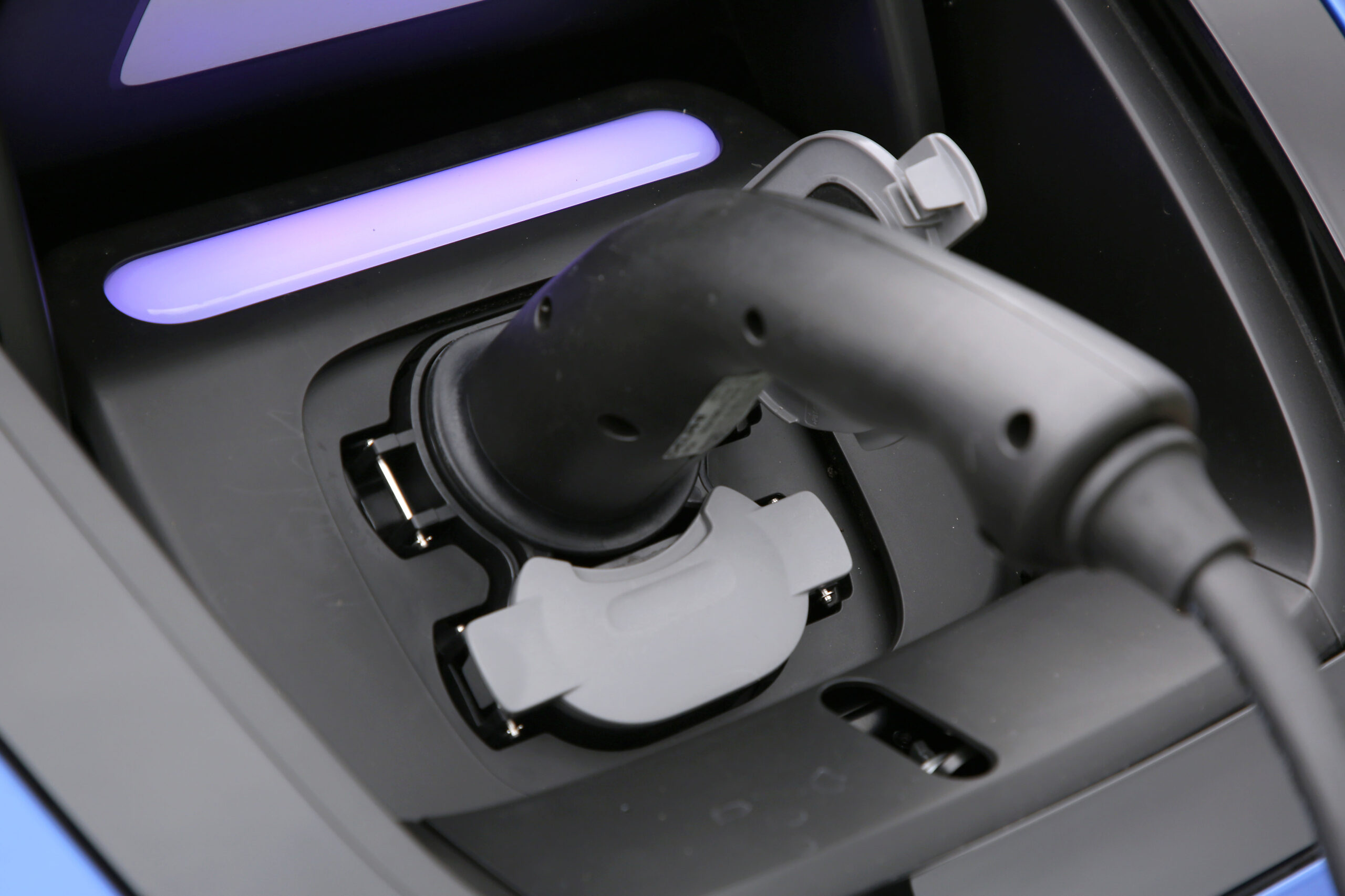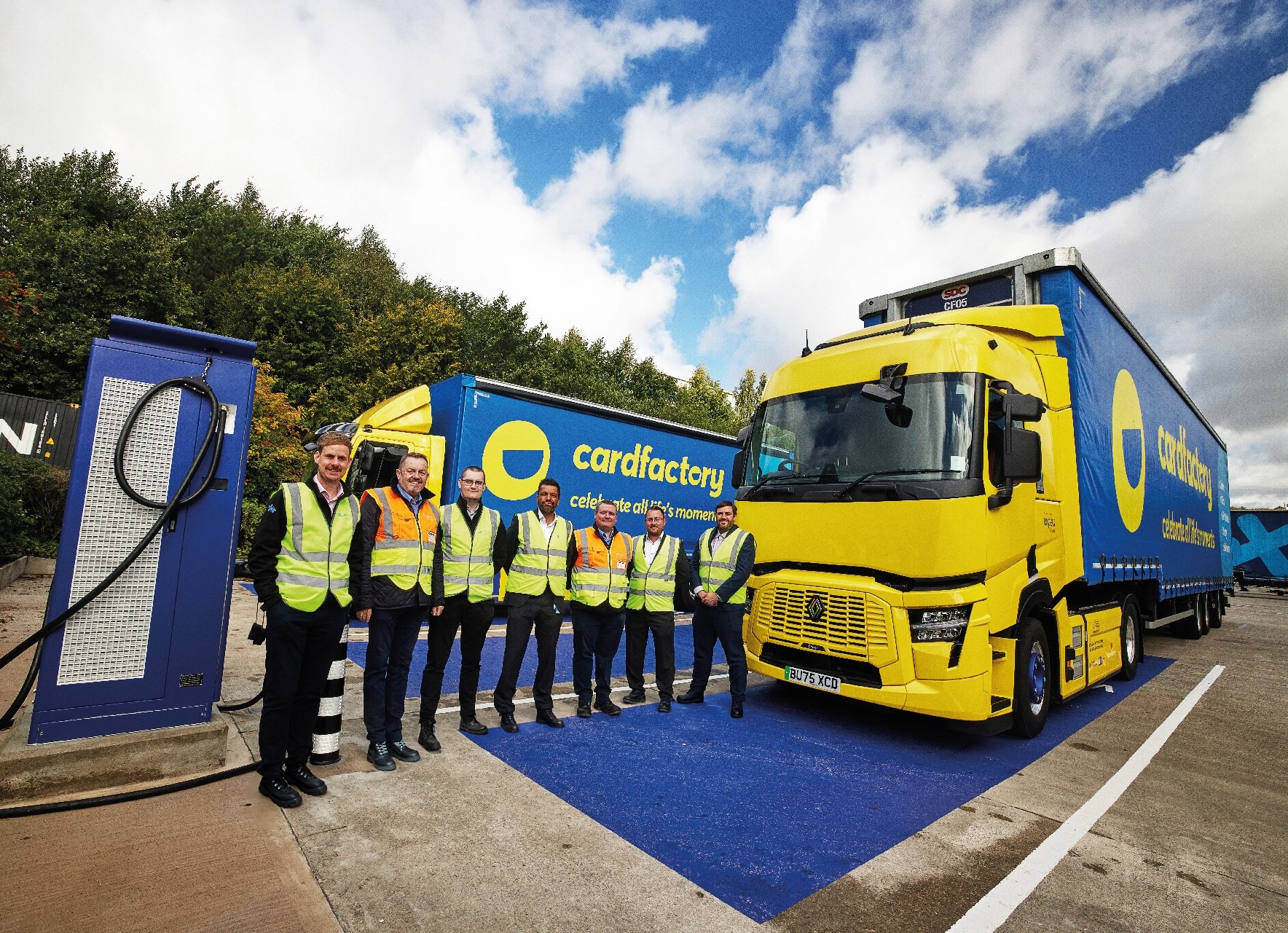
The eFreight 2030 project seeks to transform the HGV fleet renewal in the UK, encouraging a widescale switch from diesel to electric power across the sector as the need to decarbonise grows in the coming years.
Set up by charging infrastructure specialist Voltempo, eFreight 2030 aims to help introduce up to 100 electric HGVs and 32 new charging locations – many with megawatt-charging capacity – over a multi-year real world evaluation.
Delivered in partnership with Innovate UK, the scheme is one of four Department for Transport-funded projects under the £200m Zero Emission HGV and Infrastructure Demonstrator (ZEHID) programme, which aims to accelerate the adoption of electric freight vehicles.
As part of eFreight 2030, Expect Distribution has taken delivery of its first two fully electric HGVs, marking a major step towards its ambition to reach net zero carbon emissions by 2035.
The two vehicles – a Renault Trucks E-Tech T 4×2 tractor unit with sleeper cab and a Renault Trucks E-Tech D Wide rigid curtainsider – were delivered by JDS Truck & Van. Joining a fleet of more than 100 trucks, they are based at the haulier’s Woodlands distribution hub in Bradford, just off the M62.
The site also has two new 240kW chargers, installed by Voltempo, each capable of charging two vehicles simultaneously. The facilities can recharge the trucks overnight, with the potential to make planned charging available to third parties at other times.
One of the vehicles has begun operating on a daily trunk to the Palletline hub in Birmingham, while the second has been deployed on local store deliveries for Card Factory.
Together, the trucks are expected to deliver an annual saving of about 195 tonnes of carbon dioxide compared with their diesel counterparts.
Andy Taylor, Operations Director at Expect Distribution, said: “The eFreight 2030 project has given us the opportunity to invest in technology that not only reduces our carbon emissions but also to prove that sustainability in logistics can be achieved without unsustainable cost increases.
“We’ve worked closely with Card Factory to align this project with their sustainability goals and to optimise routes to ensure we can service their stores effectively and efficiently with the new EVs.
“As a business we are fully committed to achieving Net Zero by 2035, and we see eFreight 2030 as a key step in helping us, and our customers, deliver on these ambitions. We’ll continue exploring where further electrification is appropriate across all our routes.”
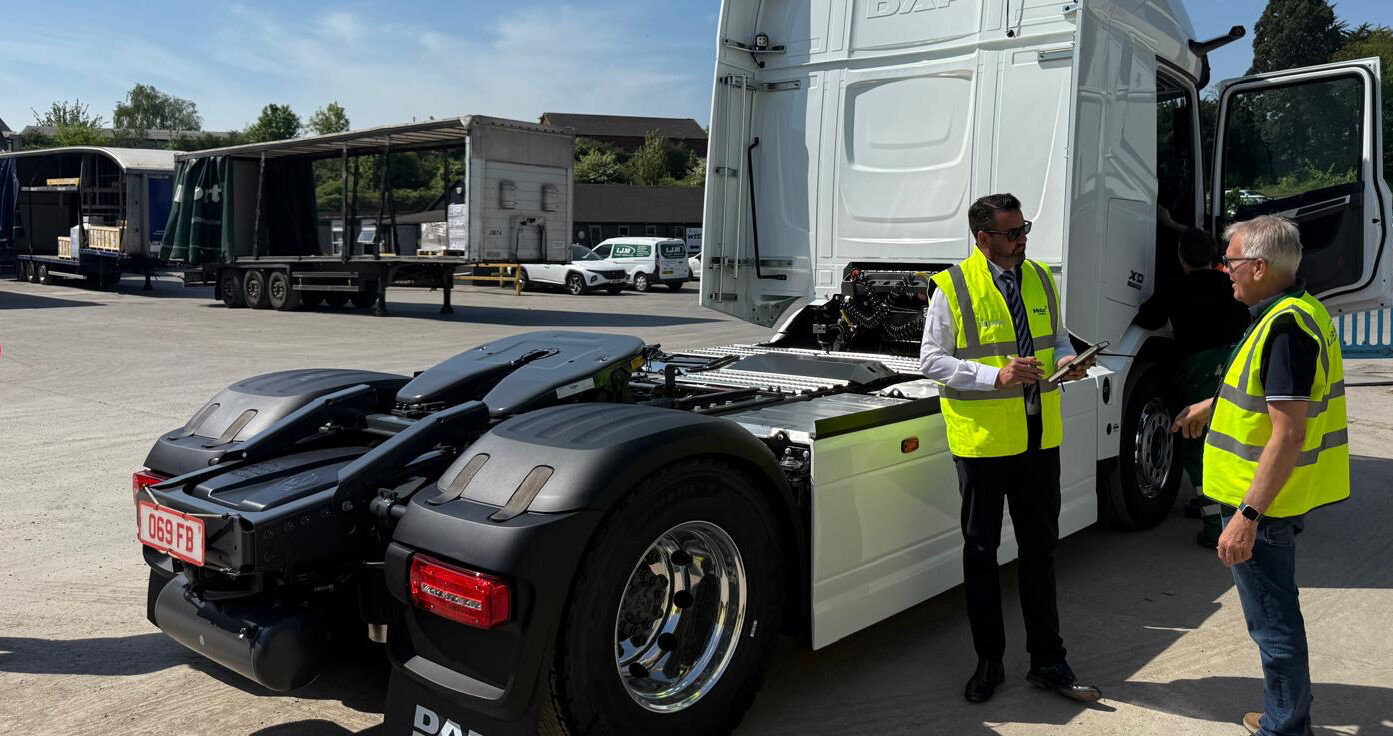
Under eFreight 2030, seven fleets and two charging hubs are deploying Voltempo HyperChargers, each with at least six bays and 1,000kW capacity, while a further two fleets are adopting Voltempo’s lower-powered chargers.
Each HyperCharger is designed for on-site upgrades to support trucks with advanced megawatt charging system (MCS) charge ports at 700kW+.
Purpose-built for HGVs, its ‘halo’ design lifts and protects the heavy charging cables, preventing damage and making operation safer and more practical in busy logistics depots.
With no touchscreens, cards, or apps required, drivers can plug-in and charge.
Michael Boxwell, CEO of Birmingham-based Voltempo, said: “Our technology has been designed from day one to meet the real-world needs of logistics operators, and we’re proud to be creating green jobs and driving innovation.”
New consortium member IJ McGill Transport is installing charging infrastructure at three of its five depots, including a Voltempo UK manufactured megawatt HyperCharger at its Bristol site and 240-kilowatt chargers at its Tavistock and West Bromwich locations.
The family-run haulier is also adding three DAF electric vehicles to its existing fleet of about 130 vehicles which features a mix of tractor units, rigid trucks, 3.5-tonne vans, and a variety of trailers, including straight frame, double-deck, and urban configurations.
These new electric vehicles, purchased through Motus Commercials DAF Avonmouth, are used for both daytime distribution and overnight trunk routes.
IJ McGill Transport’s charging strategy primarily focuses on depot-based charging, utilising the downtime between routes.
The megawatt HyperCharger at its Bristol site charges a vehicle in about an hour, while its 240-kilowatt chargers take about 90 minutes.
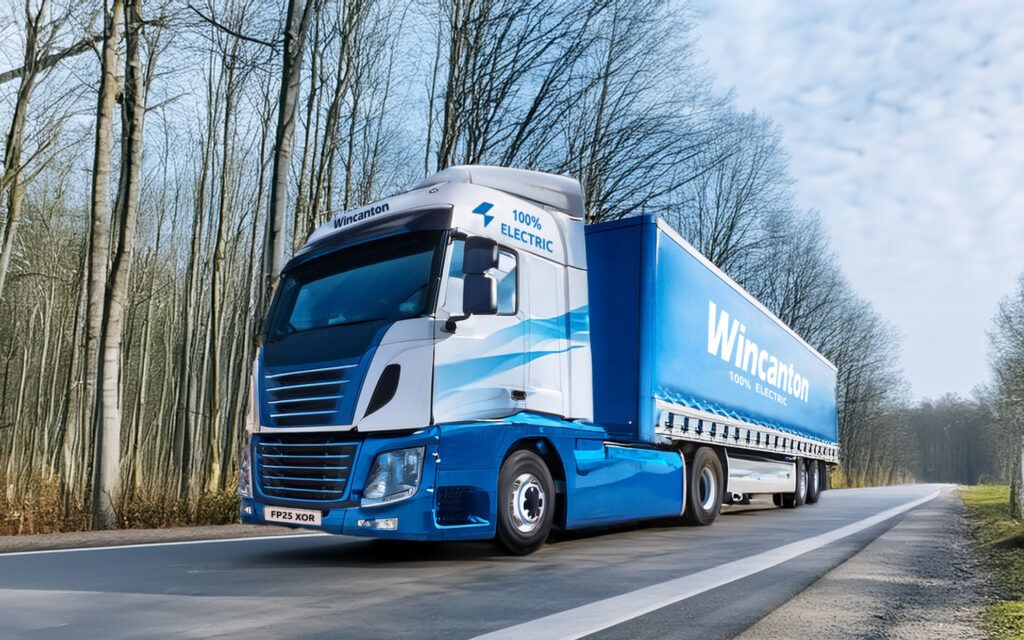
Charging vehicles takes place during two key windows – early morning, when trucks return from overnight trunking operations between 3am and 4am, and again in the early evening, between 5pm and 7pm, before they go out for night work.
“As a family business that’s always looked towards the future, introducing electric vehicles allows us to reduce our environmental impact while future-proofing our operations,” said Heather Brown, Operations Director at IJ McGill Transport.
“The consortium’s financial support and shared learning opportunities make this transition more accessible for a company of our size.”
Consortium members contribute valuable operational data to the programme over the project period and, in return, they benefit from the shared knowledge and experience of other members operating electric HGVs.
As part of the scheme, Wincanton has taken delivery of the first of 24 new electric-powered trucks – part of its strategy to reach net zero carbon emissions by 2040.
The new vehicles, supplied by DAF, Volvo Trucks and Renault Trucks, operate at more than 40 tonnes, and are expected to reduce Wincanton’s CO2 emissions by 2,400 tonnes per year.
To support the new trucks, Wincanton is rolling out depot-based charging infrastructure across key sites, including Greenford in West London, Portbury, its Scotland Gateway Hub near Glasgow, and The WEB in Northamptonshire.
The infrastructure is designed and built in partnership with Voltempo and Gridserve.
Carl Hanson, Wincanton’s Managing Director of Transport, said: “Sustainability is at the heart of everything we do, with collaboration fundamental to achieving our net zero goals.
“By pioneering new vehicle technologies, we’re cutting carbon and delivering smarter, greener solutions for our customers.
“And, with these HGVs marking a major step forward in our commitment to a more sustainable supply chain, this important milestone will help us learn and adapt for the future.”
The more that companies take positive steps such as membership of eFreight 2030 – sharing valuable real-world data and insights into how eHGVs can operate efficiently in everyday logistics – the clearer and faster the industry’s transition to zero emission road freight will be.

